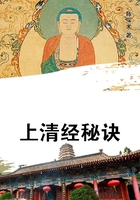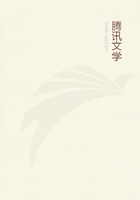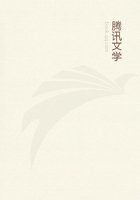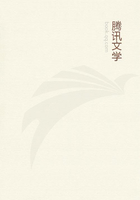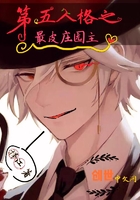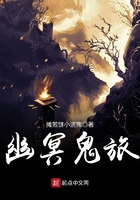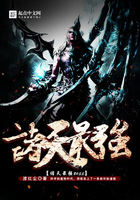The Middle Ages extend from the fifth to the fifteenth century, from the fall of the Roman Empire to the establishment of the great modern states.The general outline of the history of the Middle Ages can be seen in the following excellent table:
Drury's "History of the Middle Ages", page XIV.
1.The decline of the Roman Empire and the successful accomplishment of two invasions.
2.The transient brilliancy of the Arabian civilization.
3.The attempted organization of a new empire by Charlemagne, and its dissolution.
4.The rise and prevalence of feudalism.
5.The successive crusades.
6.The contest between the pope and the emperor for the sovereignty of the world.
The history of these ten centuries falls naturally into three great divisions:
1.Fifth to tenth century, the destruction of the past and transition to new forms.
2.Eleventh to thirteenth century, feudal society with its customs, its institutions, its arts, and its literatures.
3.The fourteenth and fifteenth centuries, a second time of transition.
The period, then, of the eleventh, twelfth, and thirteenth centuries was one of intense political life, of advanced national self-consciousness, of rich, highly-organized society.It was moreover a period of common ideas, movements, and tendencies over all Europe.Several factors enter into this result:
1.The church was completely organized, forming a common life and teaching everywhere.She had learned to employ the savage vigor and conquering instincts of the northern barbarians as defenses and aggressive missions of her spirit and ideas.The monasteries were homes of learning, and from them issued the didactic literature and the early drama.
2.This resulted in that romantic institution or ideal of chivalry, whose ten commandments explain so much of mediaeval life and art.
"Chivalry", by Leon Gautier, 1891, p.26.
(1) Thou shalt believe all the church teaches, and shalt observe all its directions.
(2) Thou shalt defend the church.
(3) Thou shalt respect all weaknesses, and shalt constitute thyself the defender of them.
(4) Thou shalt love the country in which thou wast born.
(5) Thou shalt not recoil before thine enemy.
(6) Thou shalt make war against the inflael without cessation and without mercy.
(7) Thou shalt perform scrupulously thy feudal duties, if they be not contrary to the law of God.
(8) Thou shalt never lie, and shalt remain faithful to thy pledged word.
(9) Thou shalt be generous and give largesse to every one.
(10) Thou shalt be everywhere and always the champion of the Right and the Good against Injustice and Evil.
3.This combination of the Christian and the warrior found its public activity most completely in the Crusades.They gave a common motive and ideal to all the knights of Europe.They brought them together for thinking and for fighting.They spread national traditions and literatures.They made the whole face of Europe and the borders of the Mediterranean known to the ambitious, venturesome, daring, and heroic of every European country.The exploits of chivalric knights were told from camp to camp and taken back home to be told again in the castles.
4.Another institution of feudalism that helped to make this common subject and spirit of mediaeval literature was the minstrel, who was attached to every well-appointed castle.This picturesque poet--gleeman, trouvere or troubadour sang heroic stories and romances of love in the halls of castles and in the market places of towns.He borrowed from and copied others and helped to make the common method and traditions of mediaeval song.
5.Other elements in this result were the extensions of commerce and the growth of traveling as a pleasure.
6.Finally, the itinerant students and teachers of mediaeval universities assisted in the making of this common fund of ideas and material for literature.
(7) Behind and within all the separate national literatures lay the common Christian-Latin literature of the early Middle Ages, undoubtedly the cause of the rather startling perfection of form shown by much of the work of the period we are studying.
See Ebert "Allgemeine Geschichte der Literatur des Mittelalters".Vol.I., p.11.
The result of all these unifying tendencies is to give a strong family likeness to the productions of the various European countries of the eleventh, twelfth, and thirteenth centuries.The subject matter often varies, but the motive and form of writing are much alike.This likeness can be seen by a short survey of the more important kinds of literature of the period.
I.THE NATIONAL EPIC.
In every country in which the national epic grew up it had the same origin and line of development.First there was the historical hero.His deeds were related by the traveling gleeman or minstrel--in brief chapters or ballads.Gradually mythical and supernatural elements came in; the number of achievements and the number of ballads grew very large; in this oral state they continued for many years, sometimes for centuries.
Finally, they were collected, edited, and written down--generally by a single editor.In all cases the names of the poets of the ballads are lost; in most cases the names of their redactors are but conjectural."The Song of Roland", and the "Poem of the Cid"are typical, simple, national epics.The "Niebelungen Lied" is complicated by the fact that the legends of many heroes are fused into one poem, by the fact that it had more than one editor, and by the survival of mythological elements which mingle confusedly with Christian features.The national epic is the expression of the active side of chivalry.Italy has no national epic, both because she was too learned to develop a folk-poetry, and because the ideas of chivalry were never very active in her history.
II.ROMANCES.
The numberless romances that sprang up in the literary period of the Middle Ages may be thrown into three groups:
1.Those belonging to the legend of Arthur and the Round Table.

